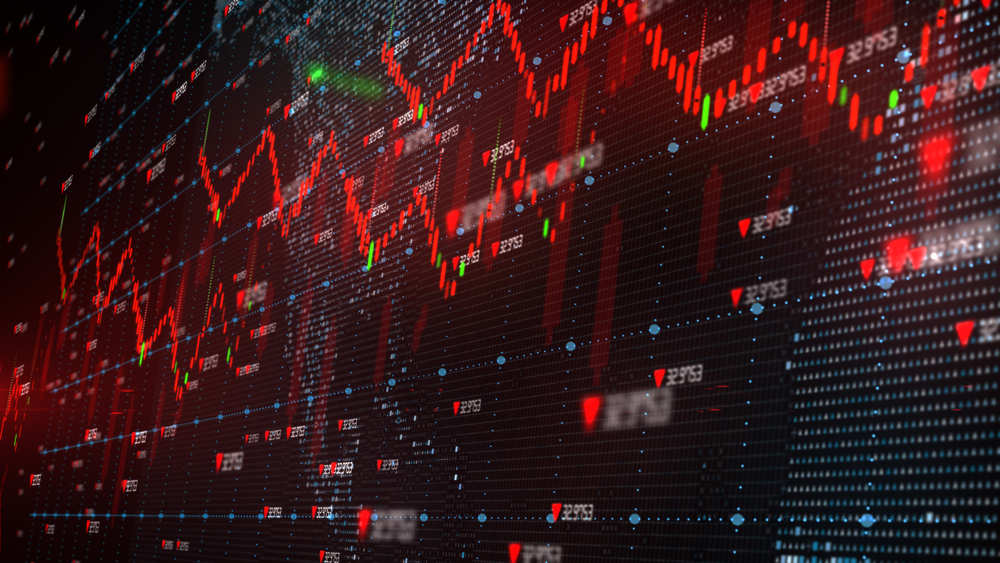Economy
Global Markets Drop, Spooked by China-US Tensions over Coronavirus

BANGKOK: Global stock markets dropped on Monday as tensions between the Trump administration and China over the origins and handling of the coronavirus pandemic rattled investors.
Benchmarks fell in most countries except for Australia, which was lifted by signs its own virus outbreak is being brought under control.
India's Sensex plunged nearly 6% as authorities extended their pandemic-fighting lockdown for another two weeks and new data showed an unprecedented drop in factory activity.
In Europe, where most markets returned from a long holiday weekend, Germany's DAX dropped 3.5% to 10,480 and the CAC 40 in Paris lost 4% to 4,390.
Britain's FTSE 100, which was open on Friday, declined 0.4% to 5,742.
The future for the S&P 500 slipped 1.1% and that for the Dow industrials lost 0.8%, pointing to a lower open on Wall Street after tech firms brought US markets down at the end of last week.
Tokyo, Shanghai and Bangkok were among markets closed for holidays on Monday.
Criticized over his handling of the crisis, President Donald Trump has tried to shift the blame to China.
Beijing has repeatedly pushed back on US accusations that the outbreak was China's fault.
The antagonisms threaten to undo the truce in a trade war between Washington and Beijing that was struck just before China began shutting much of its economy down in late January to fight the pandemic.
A 4-page Department of Homeland Security intelligence report dated May 1 and obtained by The Associated Press contends that Chinese leaders “intentionally concealed the severity” of the pandemic from the world in early January.
It alleges, citing variances in trade patterns, that China was downplaying the severity of its outbreak, first reported in the central Chinese city of Wuhan, while stockpiling medical supplies.
“The renewed possibility of the return of the trade war that had plagued markets since at least 2017 once again weighed on sentiment,” Jingyi Pan of IG said in a commentary.
Tensions over the pandemic and threats to hit back with trade sanctions have amped up risk, Mizuho Bank said in a report.
“Even as growth-stifling containment measures are set to be phased out in May, the global downturn looks to deepen in Q2,” it said.
There is no public evidence of an intentional plot to buy up the world's medical supplies, though China did muzzle doctors who warned of the virus early on.
But it informed the World Health Organization of the outbreak on December 31; contacted the US Centers for Disease Control on January 3 and publicly identified the pathogen as a novel coronavirus on January 8.
Many of its missteps appear to have stemmed from bureaucratic hurdles.
Wall Street has been bracing for a poor showing by companies this earnings season due to the economic shock from the coronavirus.
Many companies have pulled their earnings guidance for the rest of the year, citing uncertainty about how much of an impact the outbreak will have on their business and the economy, which is now in a recession.
Bleak trade and manufacturing data are also discouraging investors on the lookout for upbeat news on steps to stop the pandemic and prevent a resurgence in cases in places that are beginning to reopen after shutdowns.
Hong Kong's Hang Seng index fell 4.2% to 23,613.80 on Monday.
The Kospi in South Korea dropped 2.7% to 1,895.37.
Shares also fell by more than 2% in Singapore, Taiwan and Jakarta.
Australia's S&P ASX/200 gained 1.4% to 5,320.30, rebounding from early losses on gains in miners and banks.
The yield on the 10-year Treasury edged lower, to 0.60% from 0.62% on Friday, well below its 1.90% level at the start of the year.
Benchmark US crude oil fell 99 cents to $18.79 per barrel in electronic trading on the New York Mercantile Exchange.
It gained 94 cents on Friday.
US crude has plunged from its perch of roughly $60 at the start of the year on worries about a collapse in demand and strained storage facilities.
Brent crude, the international standard, gave up 60 cents to $25.84 per barrel.
The dollar fetched 106.81 Japanese yen, down from 106.88 yen on Friday.
The euro weakened to $1.0936 from $1.0980.















